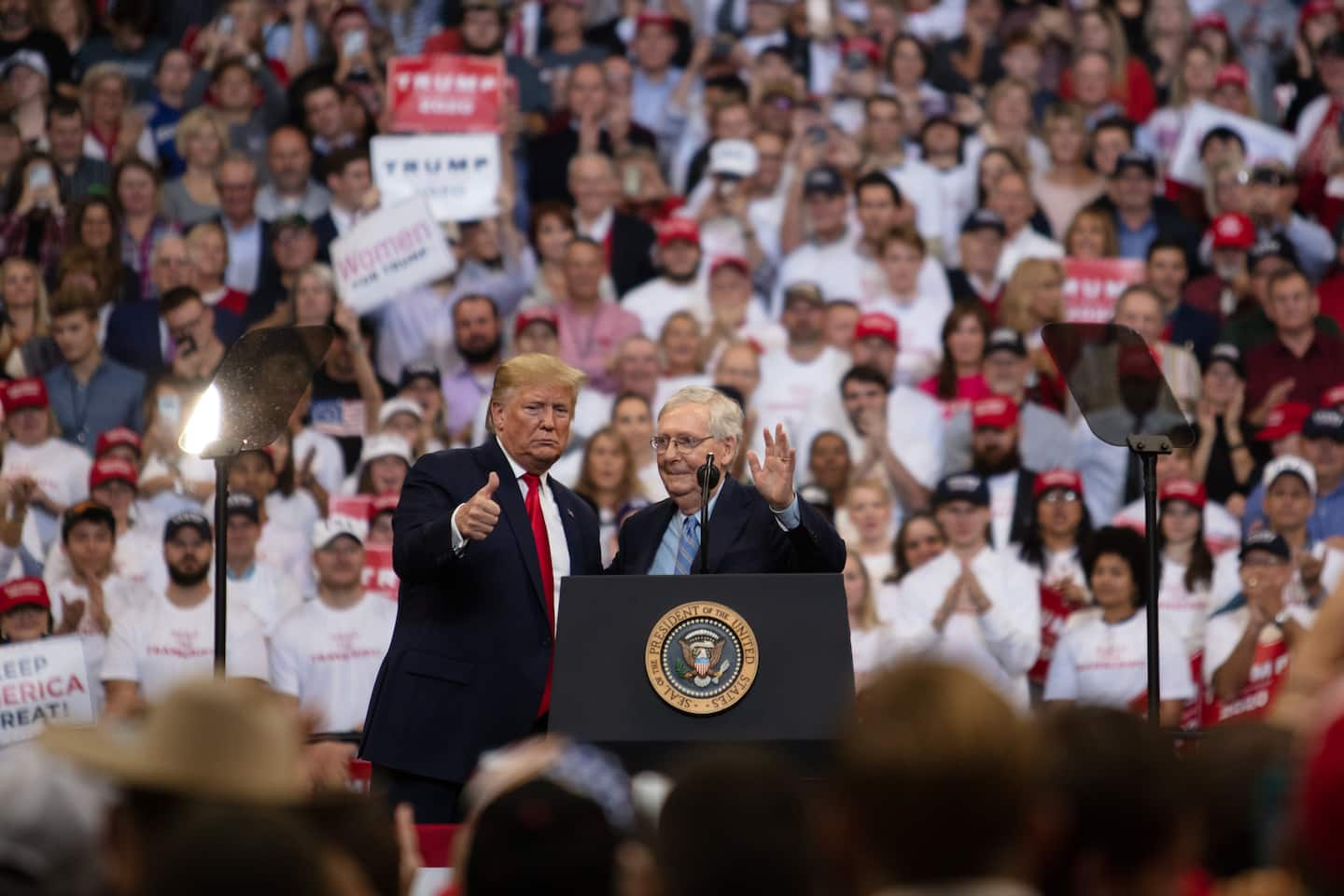Conservatives try to commandeer ‘the big lie’

Given that last narrative, Trump and his supporters quickly sprung into action. They commandeered the term, twisting it to refer to something else entirely. Suddenly, it was used to describe media reports and media figures with whom they disagreed. Thanks to Trump’s knack for branding and repetition, this latter meaning became more pervasive. A pithy phrase used to describe a legitimate media phenomenon that risked undermining Trump suddenly became an even pithier political cudgel for him to use against his foes.
Today, a similar effort is afoot to re-purpose another phrase that has become a liability for Trump’s party: the “big lie.”
The decisions by Major League Baseball, Coca-Cola and Delta Air Lines to push back on Georgia’s new voting law has united much of the conservative movement — Trump supporters and critics alike — against them. The right has accused the left and the media of overstating the suppressive elements of Georgia’s law and these corporations of swallowing the claims whole.
It has been rightly noted that such laws and their more extreme variants are predicated, in many ways, on Trump’s “big lie” of a supposedly stolen election. GOP legislators have justified such efforts by saying that they are needed to address even the perception of problems, regardless of nonexistent evidence of the widespread voter fraud that Trump claimed.
Conservatives, though, are appropriating that phrase not to describe the predicate for laws like Georgia’s, but rather the pushback against it.
“All the facts disprove the big lie,” McConnell said, referring to polls showing strong support for the kind of voter ID requirements that Georgia will apply to absentee ballots, as well as Washington Post fact-checks of President Biden’s false claims about the law’s effect on Georgia’s early-vote poll closing times.
McConnell added that “a host of powerful people and institutions apparently think they stand to benefit from parroting this big lie.”
There is a legitimate debate to be had about just how suppressive Georgia’s law is. Some of the more far-reaching proposals that had been passed in the state House and Senate were ditched after an outcry, including getting rid of no-excuse absentee voting and curtailing Sunday early voting, which seemed targeted at Black churches’ “souls to the polls” events. Conservatives have rightly noted that the end product, on many fronts, leaves Georgia within the mainstream of how many states conduct their elections. (The Post’s Peter Stevenson runs down all the changes in the Georgia law here.)
But regardless of where Georgia lands vis-a-vis other states, it remains true that restrictions are being added in response to that “big lie” about the 2020 election. Republicans, including Gov. Brian Kemp, have more recently argued that Georgia’s bill is about streamlining the process, but plenty of others have pitched new voting restrictions as being a response to concerns about election legitimacy. And a crucial element of the bill takes power out of the hands of Georgia’s secretary of state right after, it just so happens, the Republican in that position emerged as one of the biggest critics of Trump’s “big lie.” As Philip Bump writes, that predicate matters.
But beyond that, we have the appropriation of the “big lie” terminology. And the parallels to “fake news” are abundant.
As with “fake news,” the “big lie” isn’t a new concept. It was most widely associated with Nazi Germany and came over time to refer to “a strategy of propaganda that focused on the mass dissemination of a single or a few chief falsehoods to a target population,” as historian Zachary Jonathan Jacobson wrote in The Post in 2018. Such phrases catch on because they simplify a complex topic.
And it very aptly applied to Trump’s campaign to question the 2020 election results. Courts routinely rejected those claims by him and his allies like Rudy Giuliani and Sidney Powell. There is still no evidence of the kind of massive fraud that they stated as fact — or anything close to it. But it was stated so frequently and with such gusto that large portions of the Republican Party came to believe it.
As with “fake news,” though, the term — while not applying so neatly in this instance — is probably an effective political message.
Biden and his allies have compared Georgia’s law and other such proposals to Jim Crow laws, which went significantly further in curtailing Black voting rights — and in a much more targeted way. But defenders of the law and critics of the corporate pushback have largely cherry-picked some of the less-objectionable elements while ignoring a few things: the scale of the effort by GOP legislators across the country, some of the attempted-and-later-abandoned changes, and the motivations for the push. While Trump’s claims of fraud were built upon basically nothing, there is, at the very least, plenty to comb through in Georgia’s law and similar pushes to discern how they might practically affect voting. And advocates of such changes have made clear in many cases that their motivations were built upon the impact of a “big lie,” if not a “big lie” itself.
Using this term in such a way serves to both simplify the debate for your supporters and muddy the waters when it comes to how the term was previously employed. If one side says the “big lie” was Trump’s voter-fraud allegations and the other side says the “big lie” is the pushback against voting-law changes predicated on them, a natural equivalence — or at least something of a comparison — is drawn in some people’s minds. “The other side does it, too” is among the most effective political messages there is, because it excuses otherwise objectionable actions. And Republicans would like something — anything — to change the subject from the idea that their voting bills are premised on a “big lie.”
Expect to see this term employed plenty in the days and weeks to come.






